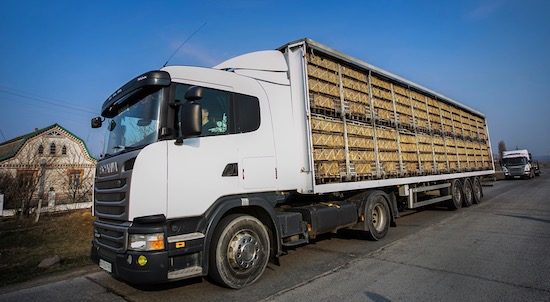5 Benefits of Engaging in a Facilitated Dialogue Process: the Case of Myronivsky Hliboproduct

In June 2018, villagers from the Vinnytsia region of Ukraine filed complaints to the independent accountability offices of the International Finance Corporation (IFC) and the European Bank for Reconstruction and Development (EBRD) about harmful impacts from an industrial chicken farm run by Myronivsky Hliboproduct (MHP). MHP has received hundreds of millions in financing from the IFC and EBRD, enabling the construction of its Vinnytsia Poultry Farm and, now, a massive expansion that will double the farm’s production capacity. Local villagers have experienced negative impacts from the farm including dust pollution, foul odors and damage to roads and buildings from heavy vehicle traffic. They also fear long-term environmental and health impacts, but lack information to understand the full scope of these risks. As the expansion of the farm is underway, there is an urgent need to address these concerns before they intensify further.
Community members have asked the accountability offices to facilitate a Dispute Resolution process to allow them to negotiate solutions directly with MHP. Dispute resolution is a voluntary process and will only move forward if the community members and the company both agree to participate. If the company refuses, or if the parties cannot reach an agreement, the accountability offices may instead initiate a Compliance Review to investigate the complaints and publish any findings of non-compliance with the banks’ social and environmental policies in a public report.
When both parties come to the table ready to participate in a meaningful way, a dispute resolution can serve as a valuable opportunity for companies, as well as the communities impacted by its operations. Here are five reasons why MHP stands to benefit from a dispute resolution with local community members:
1. A chance to achieve a complete and lasting resolution
The recent complaint filing provides a unique opportunity to resolve years of building conflict. Since construction of the farm began in 2010, community members have continuously raised concerns about its impacts. MHP has made progress on some issues, yet its efforts to-date have not resulted in any true resolution of community concerns, and many people remain deeply unsatisfied with what they see as a pattern of false promises. For example, community members have requested detailed information on the environmental and health impacts of the whole farm. While recent environmental assessments are more detailed than earlier ones, MHP still has not publicly released a comprehensive assessment for the whole farm and there has been limited outside verification of the Company’s reporting. Without an independent impact assessment, conducted by mutually agreed outside experts, community members lack trust in the information provided by the company and their concerns persist.
A facilitated dialogue provides a radically different way for MHP to engage with community members. Hosted by an independent facilitator, often a trained mediator, the process offers an opportunity to build trust, identify common ground and generate comprehensive solutions. Since community members will be directly involved in the dialogue process, any solutions that the parties negotiate will have a stronger chance of achieving a lasting resolution than solutions developed by outside parties without community input. The IFC’s accountability office reports that 75% of its dispute resolution cases handled in 2017 reached a full or partial agreement: a testament to the value of this process in building trust between parties and developing mutually beneficial solutions.
2. Often faster, more flexible and less costly than other forums
A dispute resolution process is collaborative by nature, and therefore more flexible and responsive to the needs of the parties compared to other forums, such as traditional court proceedings or even a compliance review. The parties jointly agree on the rules of the process and, together, define everything from how often to meet to which parameters are needed to allow for open and productive conversations about sensitive topics. Through committed efforts to reach an agreement, the parties themselves can influence the amount of time and energy needed to resolve the dispute and avoid any longer, more painful and public processes, such as a compliance review or litigation. Additionally, dispute resolution processes have fewer procedural formalities than other processes, such as litigation, and are likewise less prone to tense, costly and ultimately distracting legal battles about procedural issues that fail to address the core of the dispute. These processes are typically completed within a year or two from when they are filed – far less time than a court proceeding may take to address similar issues, and without the hefty legal fees.
3. Make lasting improvements to local community relations
As long as MHP continues operation of the Vinnytsia Poultry Farm, it will continue to impact the people living near its facilities. Community relations is a necessary and unavoidable part of doing business among rural communities in Ukraine and it is therefore critical for the company to develop and maintain a strong social license to operate within local communities. Social license refers to ongoing acceptance or approval by local communities of a company’s business practices. Without this acceptance, companies face damaging public criticism and costly conflict with local communities, both of which can threaten the long-term sustainability of their operations. Meaningful engagement in a facilitated dialogue is an ideal way for MHP to build legitimacy and trust with local villagers and develop meaningful solutions to concerns about its Vinnytsia Poultry Farm, which is critical to enhancing its social license to operate.
4. Build and maintain an international reputation for strong corporate values
MHP asserts that environmental protection and improving the welfare of the Ukrainian population are two of its top corporate social responsibility priorities, yet recent media reports raise questions about the company’s exporting practices and the environmental and social impacts of its operations. This building pressure demonstrates that the international community, particularly European countries to which MHP exports poultry, care deeply about social responsibility and the impacts of MHP operations. Participation in a dialogue process provides an opportunity for MHP to prove its commitment to the corporate social responsibility values that it advertises. Genuine and meaningful engagement in a dialogue process would show the international community that MHP cares about the impacts of its operations enough to fix them, in line with accepted international practice for responsible business conduct.
5. Apply lessons learned across company operations
The Vinnytsia Poultry Farm is the largest of MHP’s poultry farms, but it is not the only one. The company has operations in over half of Ukraine’s 24 administrative regions, cultivating over 370,000 hectares of land, and communities living near other MHP operations have raised similar concerns. If MHP engages in a facilitated dialogue, it stands to learn lessons that may improve its community relations across all operations. If successful, the process may provide a blueprint for improving MHP’s engagement and communication with other communities, helping the company to achieve a social license to operate and reduce the reputational risks of its farms across Ukraine and beyond.

